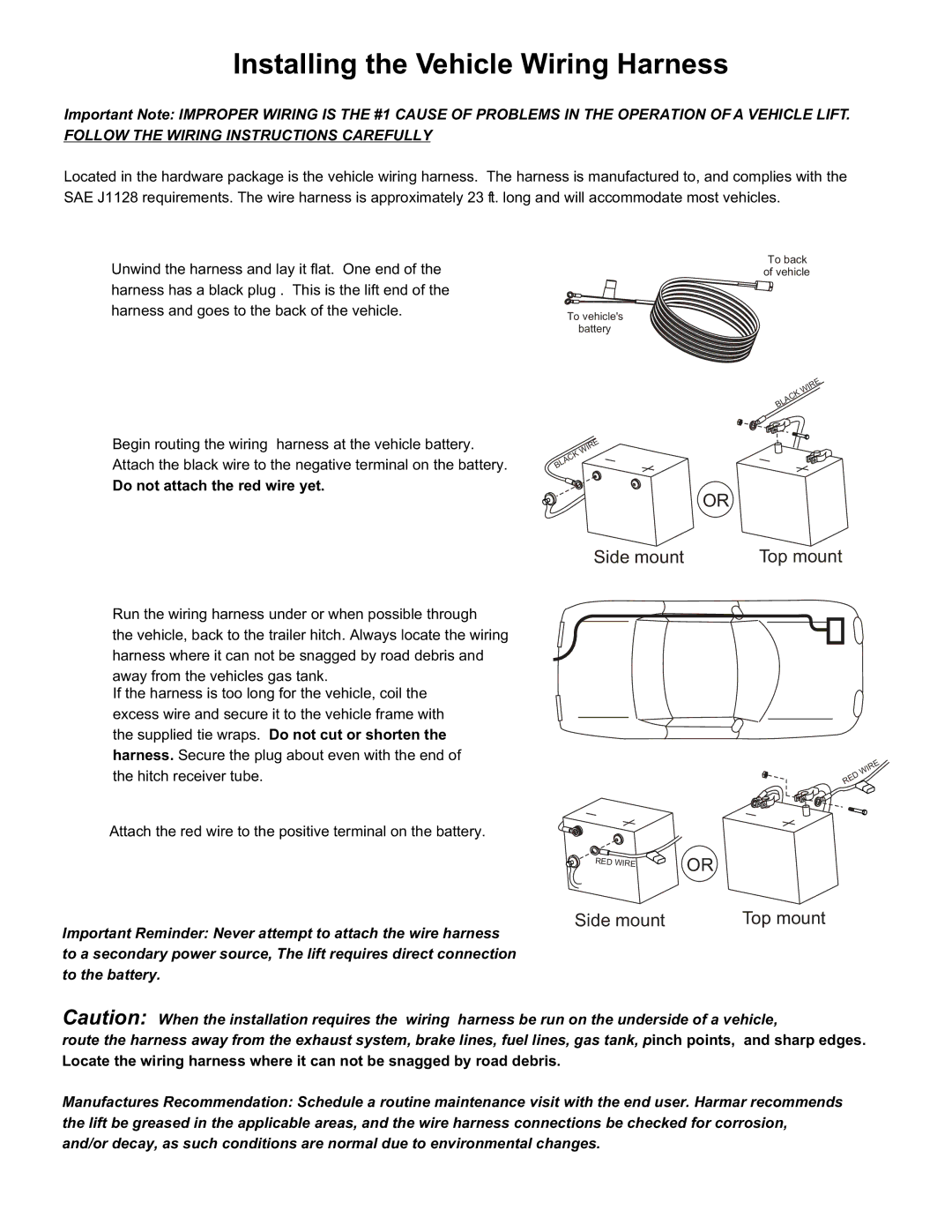
Installing the Vehicle Wiring Harness
Important Note: IMPROPER WIRING IS THE #1 CAUSE OF PROBLEMS IN THE OPERATION OF A VEHICLE LIFT.
FOLLOW THE WIRING INSTRUCTIONS CAREFULLY
Located in the hardware package is the vehicle wiring harness. The harness is manufactured to, and complies with the SAE J1128 requirements. The wire harness is approximately 23 ft. long and will accommodate most vehicles.
Unwind the harness and lay it flat. One end of the |
|
harness has a black plug . This is the lift end of the |
|
harness and goes to the back of the vehicle. | To vehicle's |
| battery |
To back of vehicle
Begin routing the wiring harness at the vehicle battery. Attach the black wire to the negative terminal on the battery.
Do not attach the red wire yet.
| IRE |
K | W |
AC |
|
BL |
|
| IRE |
K | W |
AC |
|
BL |
|
OR
Side mount | Top mount |
Run the wiring harness under or when possible through
the vehicle, back to the trailer hitch. Always locate the wiring harness where it can not be snagged by road debris and away from the vehicles gas tank.
If the harness is too long for the vehicle, coil the excess wire and secure it to the vehicle frame with the supplied tie wraps. Do not cut or shorten the harness. Secure the plug about even with the end of the hitch receiver tube.
Attach the red wire to the positive terminal on the battery.
RED | OR |
WIRE | |
|
| IRE |
D | W |
| |
RE |
|
Side mount | Top mount |
Important Reminder: Never attempt to attach the wire harness |
|
to a secondary power source, The lift requires direct connection |
|
to the battery. |
|
Caution: When the installation requires the wiring harness be run on the underside of a vehicle,
route the harness away from the exhaust system, brake lines, fuel lines, gas tank, pinch points, and sharp edges. Locate the wiring harness where it can not be snagged by road debris.
Manufactures Recommendation: Schedule a routine maintenance visit with the end user. Harmar recommends the lift be greased in the applicable areas, and the wire harness connections be checked for corrosion, and/or decay, as such conditions are normal due to environmental changes.
